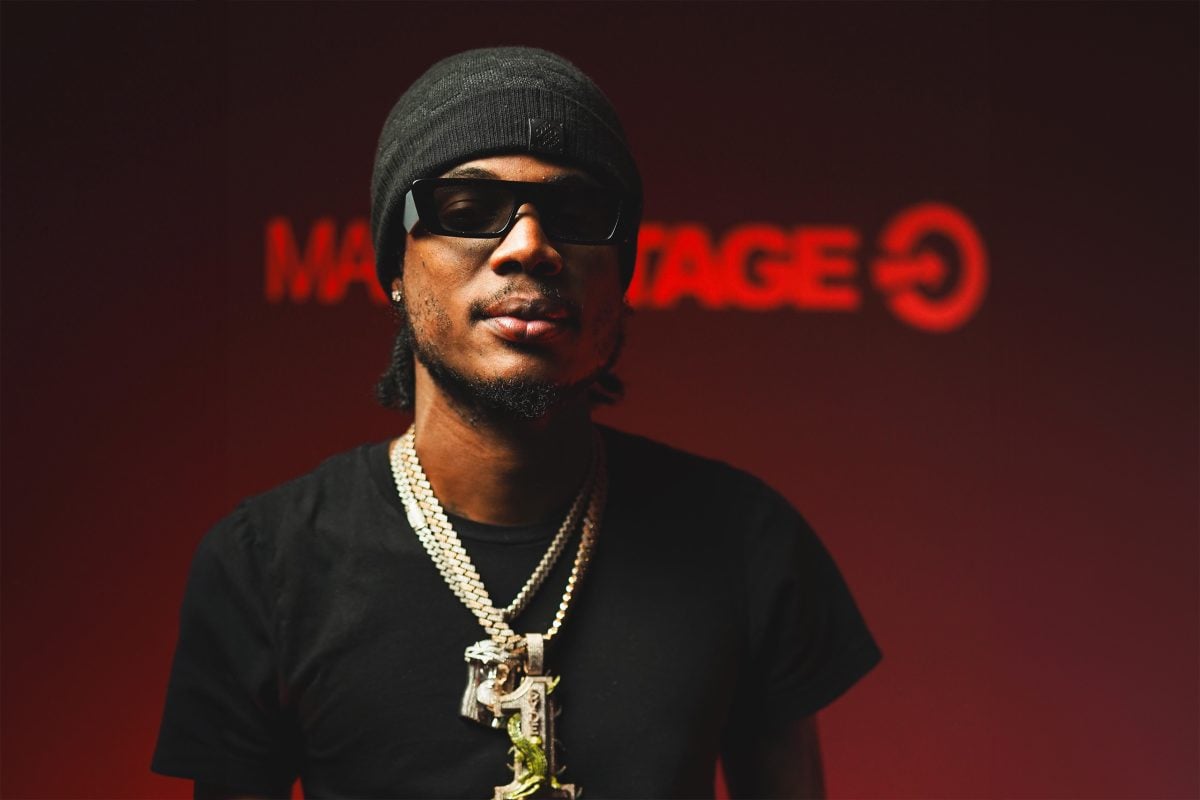Masicka Says Money Wasn’t A Major Factor When Signing With Def Jam: “For Me, It’s More Structure”

Dancehall artist Masicka revealed that structure, not money, was the driving force behind his signing a record deal with Def Jam Recordings.
Speaking at the second annual Island Music Conference (IMC) at the Courtleigh Auditorium in Kingston, the Update deejay explained that while he’d achieved significant success independently, reaching the Caribbean market wasn’t enough.
“I have done everything I could throughout the Caribbean. Like, I’ve been to most of the countries like six, seven, eight times and for me it’s more structure— not money,” he responded when asked what his motivation was to to deal the deal.
“Doing it yourself, it’s time consuming and yah go need the right team. Personally, with the record label, I already had a structure working off so it wasn’t from scratch, yuh understand? So, they come in now and dem can seh, ‘alright, this is the direction; we have this to spend, this is the kind of connections that you need [and] this is the kind of stuff that you do.”
Masicka added: “Me coming from the Caribbean island, it’s very difficult to kinda crossover with the music.”
Despite the partnership, Masicka said he remains actively involved in shaping his career.
“So, the record label is good in some sense and it all depends on the artist work ethic. Yuh cyaa depend pon di label to do everything. Really an’ truly, the label don’t care. Dem have 100 artist… yuh is just another product, if yuh understand what I mean until you prove yourself. It just up to di artist fi work hard and show dem seh dem got it,” said the artist, whose given name is Javaun Fearon.
Def Jam, one of many divisions of Universal Music Group, is based in Manhattan, New York. In the 90s, Capleton released two albums under the label. The record company’s current roster includes Buju Banton, DJ Khaled, 2 Chainz, Big Sean, Dave East, Jhené Aiko, Justin Bieber, Muni Long, Nas, and others, according to their official website.”
Under Def Jam, Masicka released his sophomore album, Generation Of Kings, in December last year. It peaked at No. 2 on the Billboard Reggae Albums chart after selling 3,500 units in combined sales and streaming equivalent units during its first week.
During the IMC panel, Masicka said his concerns over artistic freedom were addressed during negotiations.
“I always wanted it to be a case where I kept who I was; my integrity and not changing my sound and stuff. I’m not objected to learning, but that was a major concern— the direction of the music,” he said.
“A next thing was the possible chance of leaving if everyone wasn’t comfortable, ‘cause you can be locked up in these deals,” Masicka continued.
“I had the contract for like one-and-half year, to be honest. Me and my lawyers and my team went through it, but they were so adamant that they want to sign me— big up Tunji [Balogun]… really good person… those were some of the questions; if I can leave the deal after the number of albums, how the publishing split, and stuff like that… my socials; I want to still control my socials. I don’t have no problem with them overseeing it, but just the identity remaining who I am with expressing the music the same way.”
Masicka noted that it was the success of his independently released debut album, 438 , which solidified his appeal to Def Jam.
“From my understanding from what I learnt from the record labels is most of the time dem looking for a package; not just one song, not just one vibe. The thing is, music still sells, it’s just the quality of the music… 438 still sells. Like, up to this day, it’s still selling. With my deal, dem like the music, dem like the content, where do I see myself going in five years’ time? Do you see yourself becoming a superstar, do you see yourself selling millions of records? ‘Cause if it’s not that then it don’t mek no sense,” he said.
